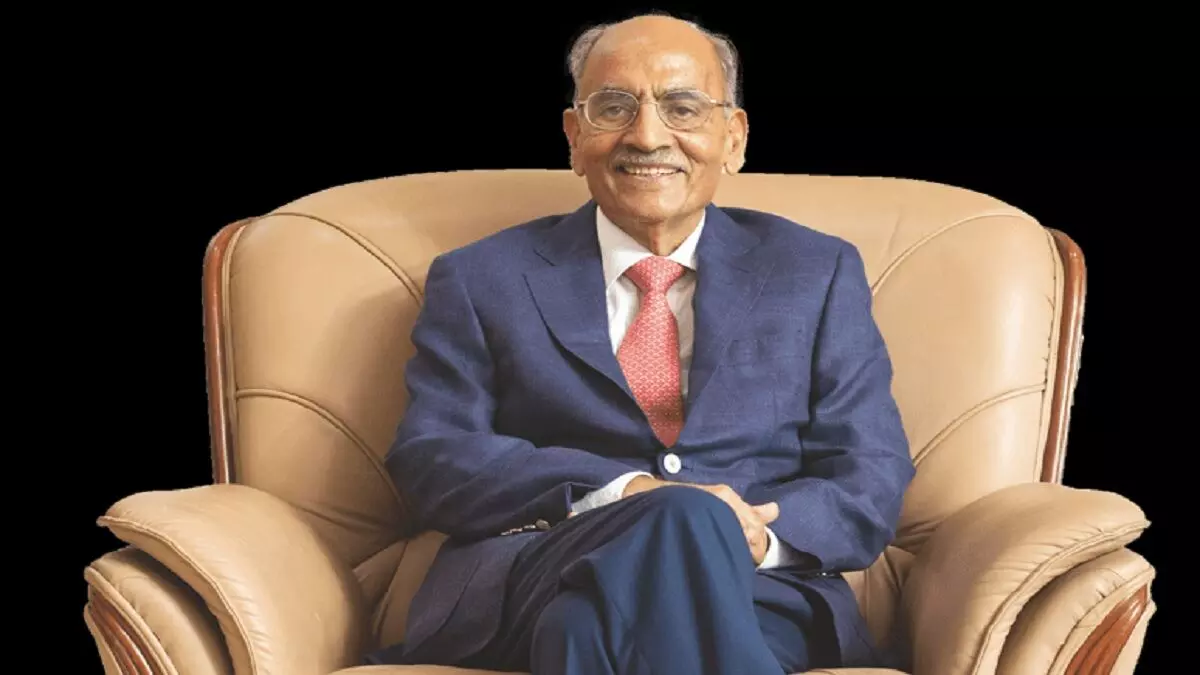Vardhman Group Chairman Duped in ₹7 Crore Digital Scam Involving Fake Courtroom
Discover how Vardhman Group Chairman SP Oswal was tricked into transferring ₹7 crore in a complex digital scam. Learn about the fake courtroom, fraud tactics, and the police investigation that followed.
Vardhman Group Chairman

Digital Scam Exposes Vardhman Group Head: ₹7 Crore Transferred in Elaborate Fraud
SP Oswal, the 82-year-old Chairman and Managing Director of Vardhman Group, fell victim to a sophisticated digital scam involving an impersonation of the Chief Justice of India, a fake courtroom, and forged documents. On August 28 and 29, Oswal was duped into transferring ₹7 crore across multiple accounts, under the false pretense of being involved in a money laundering investigation.
A Well-Orchestrated Fraud
The scam, which targeted one of India’s leading textile manufacturers, revolved around a series of deceptive tactics, including a fake courtroom simulation and fraudulent legal documents. Posing as Central Bureau of Investigation (CBI) officers, the scammers convinced Mr. Oswal that he was a suspect in a high-profile financial crime related to former Jet Airways chairman, Naresh Goyal.
Oswal recounted his ordeal, stating that it began with an unexpected call on August 28. "They claimed my phone would be disconnected unless I pressed '9'. Once I did, the voice on the other end introduced himself as a CBI official from Colaba and proceeded to link me to a financial irregularity involving an account at Canara Bank,” he told NDTV. Despite insisting that he held no such account, the fraudsters fabricated a scenario in which Oswal’s Aadhaar details had been used to open the account.
The Naresh Goyal Connection
The criminals cunningly connected Oswal to the ongoing investigation involving Naresh Goyal, suggesting that his Aadhaar details may have been misused to open the fraudulent account. The supposed officials informed him that his details might have been compromised due to past travel on Jet Airways, further solidifying their story.
Believing he was under suspicion, Oswal was convinced to cooperate. The perpetrators, adopting the guise of protectors, falsely assured him that they were working to shield him from legal consequences, a tactic that lowered his defenses.
The Digital Arrest
Under the guise of official authority, the fraudsters subjected Mr. Oswal to what they called a "digital arrest." They placed him under constant video surveillance, claiming that he could not discuss the investigation with anyone due to the National Secrets Act. Oswal was even shown a fake Supreme Court session via video, where an individual impersonating Chief Justice DY Chandrachud presided over his "case." Fake arrest warrants and orders bearing authentic-looking government seals were sent to his phone, all part of the plot to coerce him into transferring money.
"I was constantly watched and told not to disclose this to anyone, or else I, along with anyone I spoke to, could face jail time," Oswal revealed. He described how the fraudsters built their case, even going so far as to record personal details about his life, property, and business history.
The Scam Unfolds
The industrialist was made to transfer ₹7 crore across multiple accounts, thinking it was a legal mandate to protect his interests. Fortunately, once Oswal realized he had been duped, the police were quick to act. With assistance from the cybercrime coordination center, law enforcement agencies froze several accounts and successfully recovered ₹5.25 crore.
Authorities linked the scam to an inter-state gang. Two individuals, Atanu Chowdhury and Anand Kumar, were arrested in Guwahati. Both suspects, who work as small traders, claimed they had been misled about the funds being related to gaming prizes.
A New Type of Fraud
This incident sheds light on a new kind of scam known as a "digital arrest," where fraudsters maintain video communication with their target, keeping them under constant surveillance and pressure. Law enforcement agencies have repeatedly warned that there is no such thing as a "digital" or "virtual" arrest, but senior citizens unfamiliar with technology are often vulnerable to such tactics.
Police are continuing their investigation to track down the remaining suspects, including alleged mastermind Rumi Kalita, a former bank employee.

